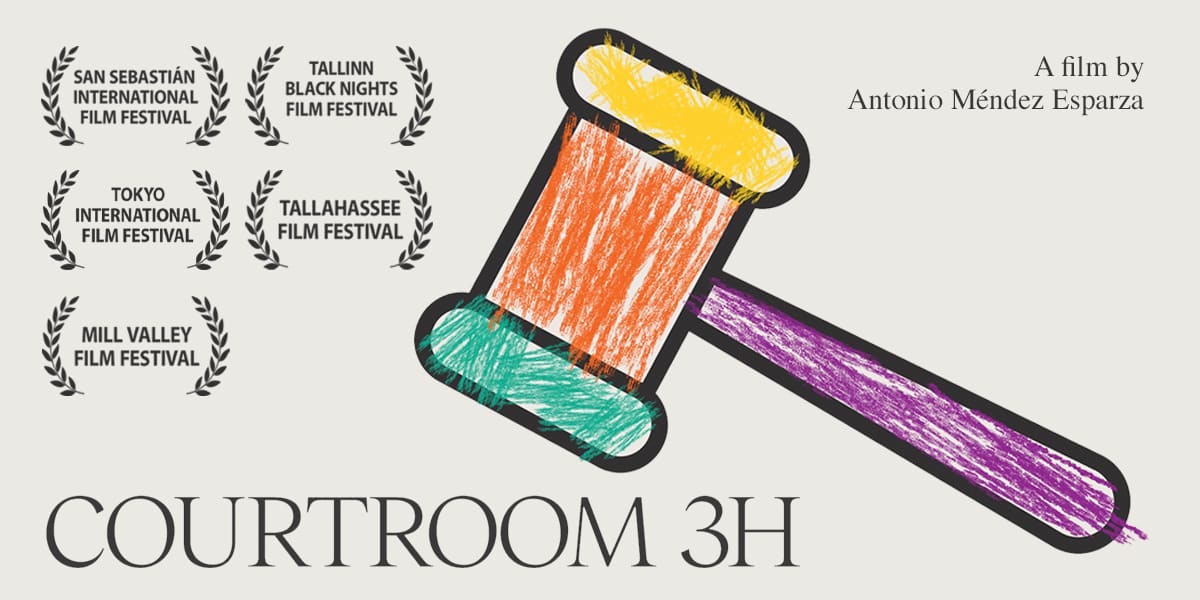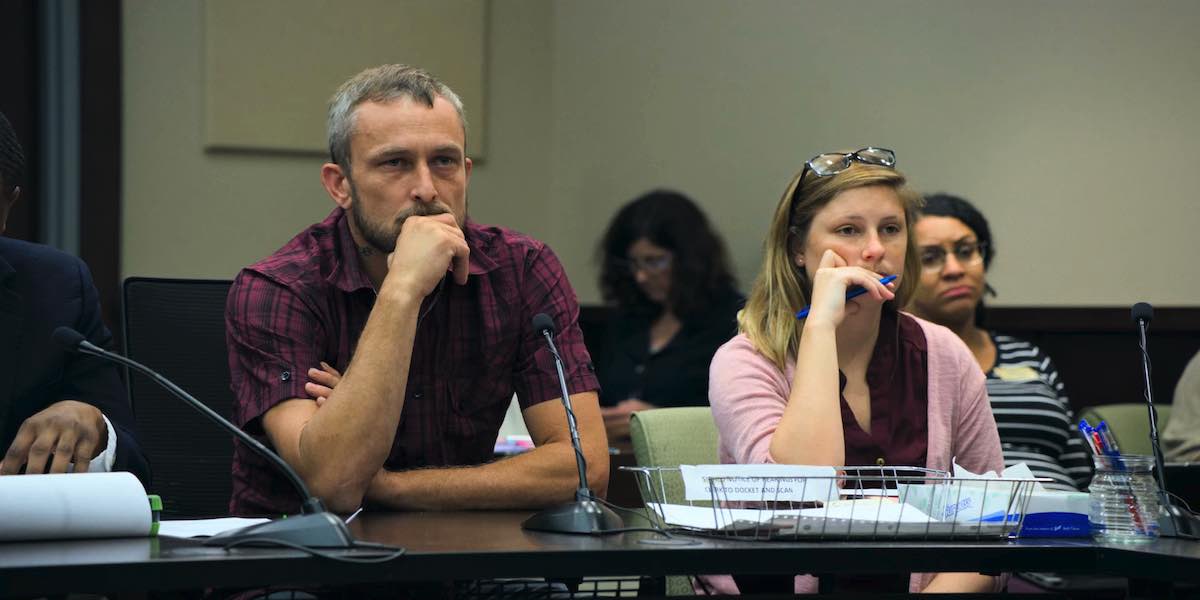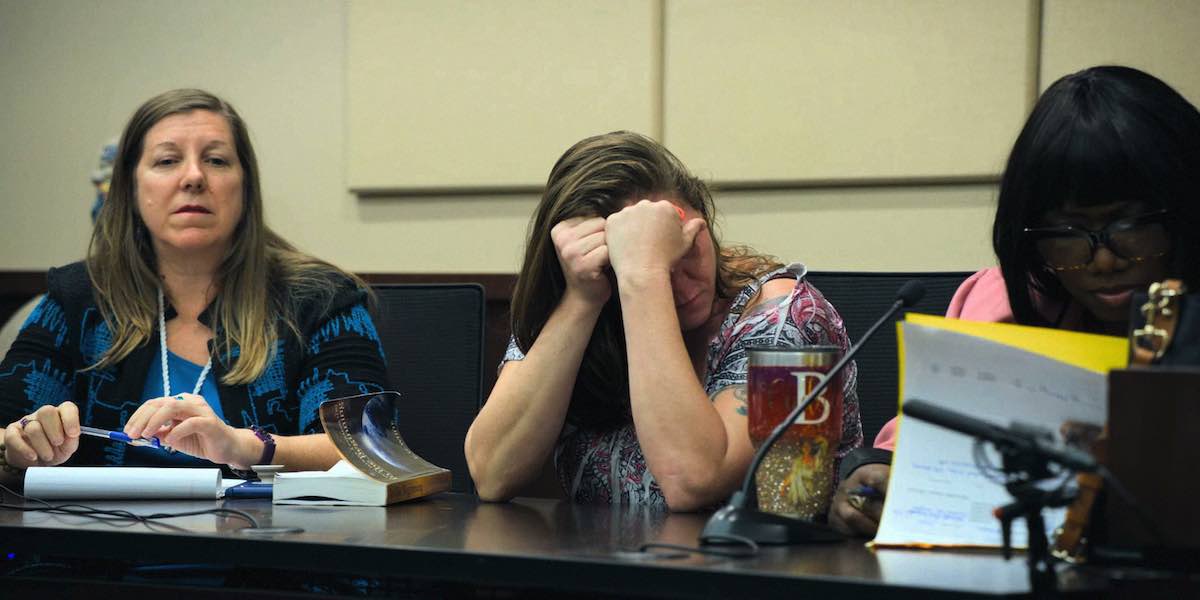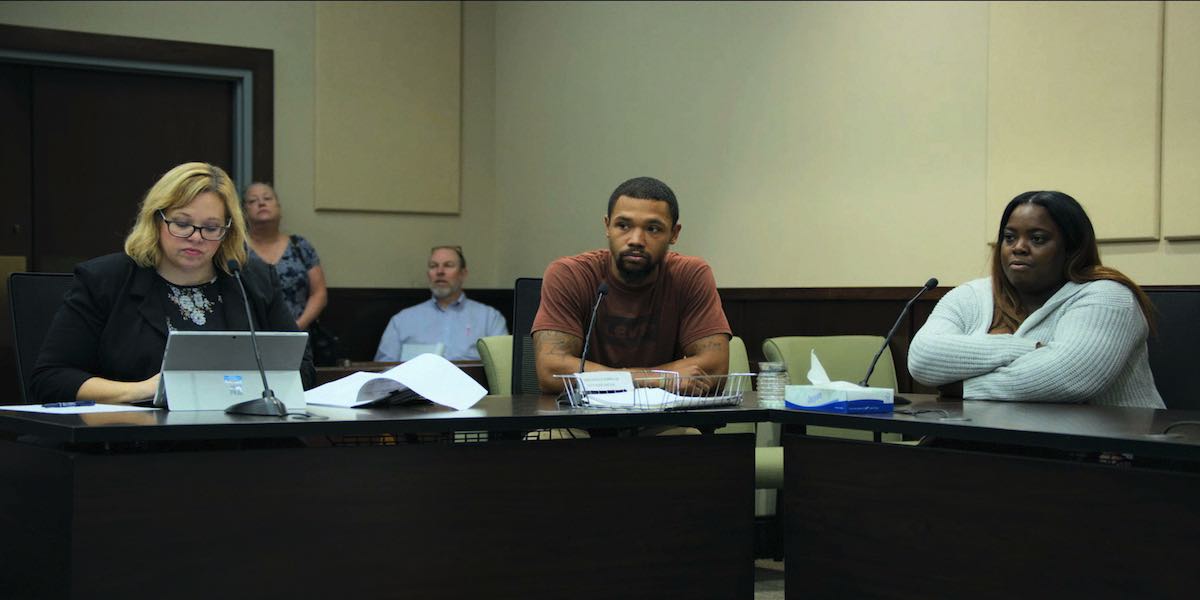Courtroom 3H
(Courtroom 3H)
Antonio Méndez Esparza / Spain, United States / 2020 / 115 min




San Sebastian International Film Festival
Tallinn Black Nights Film Festival
Tokyo International Film Festival
Mill Valley Film Festival
Tallahassee Film Festival
Related Films
 The Empty Classroom(El Aula Vacía)Gael García Bernal, Carlos Gaviria, Daniel and Diego Vega, Eryk Rocha, Flavia Castro, Lucrecia Martel, Mariana Chenillo, Nicolas Pereda, Pablo Fendrik, Pablo Stoll Ward, Tatiana Huezo Directed by Carlos Gaviria, Daniel and Diego Vega, Eryk Rocha, Lucrecia Martel, Mariana Chenillo, Nicolas Pereda, Pablo Fendrik, Pablo Stoll Ward, ...
The Empty Classroom(El Aula Vacía)Gael García Bernal, Carlos Gaviria, Daniel and Diego Vega, Eryk Rocha, Flavia Castro, Lucrecia Martel, Mariana Chenillo, Nicolas Pereda, Pablo Fendrik, Pablo Stoll Ward, Tatiana Huezo Directed by Carlos Gaviria, Daniel and Diego Vega, Eryk Rocha, Lucrecia Martel, Mariana Chenillo, Nicolas Pereda, Pablo Fendrik, Pablo Stoll Ward, ... Your Parents Will Come Back: The Children of the Exile’s journey to Uruguay(Tus padres volveran)Pablo Martínez PessiIn 1983 a group of 154 children aged 3 and 17 years old traveled alone from Europe to Montevideo. They were children of political exiles from Uruguay, ...
Your Parents Will Come Back: The Children of the Exile’s journey to Uruguay(Tus padres volveran)Pablo Martínez PessiIn 1983 a group of 154 children aged 3 and 17 years old traveled alone from Europe to Montevideo. They were children of political exiles from Uruguay, ... In Exile: A Family Film(Un Exilio: Película Familiar)Juan Francisco Urrusti AlonsoThe Spanish Civil War (1936-39) left a million dead and over 500,000 refugees. Mexico welcomed about 20,000. Among them were the filmmaker’s ...
In Exile: A Family Film(Un Exilio: Película Familiar)Juan Francisco Urrusti AlonsoThe Spanish Civil War (1936-39) left a million dead and over 500,000 refugees. Mexico welcomed about 20,000. Among them were the filmmaker’s ... I Girl(Yo niña)Natural ArpajouBased on the director’s autobiographical experiences, I Girl tells the story of Armonía, a little girl who lives with Pablo and Julia, who seem to be ...
I Girl(Yo niña)Natural ArpajouBased on the director’s autobiographical experiences, I Girl tells the story of Armonía, a little girl who lives with Pablo and Julia, who seem to be ... Los Lobos(Los Lobos)Samuel Kishi LeopoFollowing his success with We Are Mari Pepa, director Samuel Kishi Leopo approaches a more personal topic in the moving autobiographical film. With ...
Los Lobos(Los Lobos)Samuel Kishi LeopoFollowing his success with We Are Mari Pepa, director Samuel Kishi Leopo approaches a more personal topic in the moving autobiographical film. With ...Pricing
Related Subjects
Download
English
Raw and powerful, Courtroom 3H marks a confident documentary debut from director Antonio Méndez Esparza (Here and There). Shot in a single courtroom over the course of a month, the film takes viewers inside Florida’s Tallahassee Unified Family Court, which specializes in judicial cases involving minors. Cases of abuse, abandonment, and negligence are presided over with the express objective, under the law, to reunite families as quickly and safely as possible.
Filtered through courtroom professionalism and presented with an observational distance, a sequence of staggeringly emotional hearings and trials hints at the complexities of these family stories, calling into question a justice system with the power to decide who is suitable to be a parent and who is not, but that is incapable of addressing underlying societal structures and often multi-generational pain.
Shining a needed light on the economic disparities underlying so much of what occurs in the US justice system, Courtroom 3H offers another profoundly sensitive portrait of family at the mercy of the system.
Press
“Méndez Esparza shoots the film, so it seems you are a fly on the wall. At times this makes you feel immersed into the courtroom as you were there bearing witness. ... This film would work well for in-class viewings in courses such as social work, sociology, counseling and human services and criminal justice.” – Giovanna Colosi, Librarian for the School of Education, Syracuse University, EMRO
“Plunging the viewer straight into Tallahassee’s family court, this questioning, challenging film will travel to wherever fine and nuanced cinema is celebrated.” – Fionnuala Halligan, Screen Daily
“By the end, though we have often been sad, we should also feel some satisfaction that the system can work. It's not very pretty, but it's still a beautiful thing.” – Christopher Llewellyn Reed, Film Festival Today
“This is emotion in the raw, not just from those faced with the possibility of seeing someone else take on responsibility for their kids, but also from the advocates representing them who are being put through the emotional wringer as well.” – Amber Wilkinson, Eye for Film
“A sometimes shocking, sometimes uncomfortable, but nuanced and necessary look into a world too few people know about.” – Zaki Hasan, Mill Valley Film Festival
“[Méndez Esparza's] work has always been sensitive and sympathetic to the lives of the least privileged, and so this foray into the documentary form is not the volte-face it may first appear.” – Alfonso Rivera, Cineuropa
“By simply presenting reality as it happens, the audience becomes the eyewitness to the legal process and the people who are at its mercy so we start to reconsider our own prejudices.” – Melbourne Documentary Film Festival
About the Director
Antonio Méndez Esparza was raised in Madrid, and has lived in New York City, Mexico, and Madrid for most of the past decade. His work is known for its careful observation of its characters, and its celebration of the everyday texture of their dramas. Here and There (Aquí y Allá, 2012), his debut narrative feature film, is a culmination of five years of work to bring the story to life through his challenging method of narrative filmmaking. With it won the Cannes Critics’ Award and it became the most awarded Spanish film of 2012.
His second feature film, “Life & Nothing More” became the first Spanish production which won the John Cassavetes Award at the 2018 Film Independent Spirit Awards. On 2020 premiered his first documentary film “Courtroom 3H “and he is currently working on his next project “Madrid is it”.
Notes on Film
“With this film, we pursue an idea of a certain defenselessness of the citizen before the judicial systems, since the citizen is at the mercy of the law – fair or unfair. So, we will focus attention on the accused, the anonymous characters. Courtroom 3H represents people between institutions. People are, in a way, part of the machinery. This is not to objectify them, but rather to give a face, a soul to the machine, to represent an institution that can sometimes succeed, and others may fail. This is one of the only courts in the United States that works for rehabilitation, although not always with success. In essence, the current problems of our society can be perceived through the cases and dynamics of the Court and how the Court deals with them.
Being able to make this film has been a miracle. We had never done a documentary, even though we had been close. We have embraced the documentary and we almost felt like another spectator in court.”
– Antonio Méndez Esparza, Director.